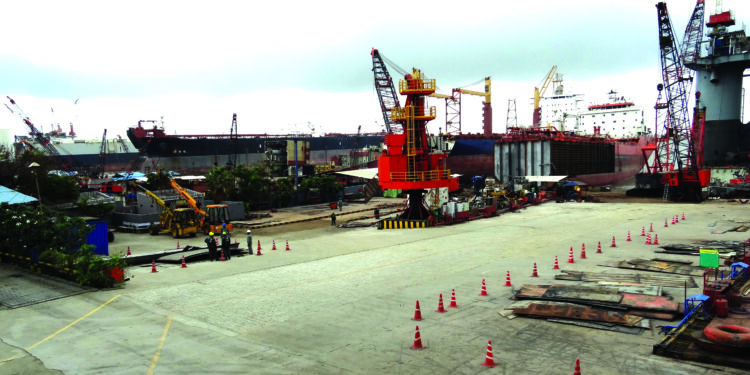According to GMS’ latest weekly ship-recycling report, as tensions escalate across warring landscapes, economies continue to react, with volatility resuming across the global maritime landscape.
Both crude oil and the Baltic Exchange have taken new directions since last week. Barrel futures climbed 1.6% to $71.2 by Friday’s close (marking an over 5% overall increase), adding a layer of geopolitical ‘risk premium’ to oil prices. Meanwhile, the Russia-Ukraine conflict rages on, with the U.S. imposing further sanctions on Gazprombank and banning trade with over 30 Chinese companies accused of exploiting labor. Simultaneously, China unveiled new policy measures aimed at boosting global trade amid incoming President Trump’s looming tariffs. This has strengthened the U.S. Dollar across major recycling destinations, including against the Chinese Yuan, which recorded a 20 basis point drop to a record-breaking CNY 7.24.
The Baltic Exchange’s main sea freight index, which tracks bulk commodities, continued easing for the fourth consecutive week on Friday, slipping about 2.5% to a two-week low due to pressures across all vessel segments. Local steel prices also declined, with imported steel in Turkey experiencing the largest drop. China and Pakistan’s plate levels followed similar trends, while India recorded marginal moves. Bangladeshi plate levels remained flat, essentially stagnant on the market floor.
As global ship recycling markets head into the final month of the year on a comparatively firmer footing, 2024 is wrapping up with minimal sales and activity. Notable price declines have wiped nearly USD 150/LDT from sub-continent levels, influenced by various factors across nations. Until stability emerges, Q1 2025 is unlikely to bring the typical vigor for the ship recycling industry. In fact, if current trends persist, with the Nuclear Clock ticking closer to midnight, 2025 could be another challenging year for shipping and recycling markets. Despite this, a recent uptick in the inflow of overaged units, particularly from Chinese shipowners, suggests otherwise. Recent healthy deliveries of Far Eastern vessels into recycling markets in India and Bangladesh reflect robust port positions in both countries.
Pakistan and India continue to struggle with cheaper Chinese steel competing against recycled steel from their respective yards. Bangladesh remains mired in political and economic instability, with the fallout from former PM Sheikh Hasina’s alleged fleeing amid a coup and ongoing military-led interim governance attempting to stabilize the nation. In India, the Modi government secured key electoral wins this week while dipping into treasury reserves to counter the Rupee’s depreciation. Pakistan, meanwhile, continues its negotiations with the IMF amidst allegations of fund mismanagement. Gadani buyers remain largely inactive, wary of engaging in business against a stronger India.
Thus, the conclusion of 2024 is set to be an uncertain and volatile period for global sub-continent recycling markets.
For Week 47 of 2024, GMS Market Rankings / vessel indications are as below:
| Rank | Location | Sentiment | Dry Bulk USD / LDT | Tankers USD / LDT | Containers USD / LDT |
|---|---|---|---|---|---|
| 1 | Bangladesh | Stable | 470 / LDT | 490 / LDT | 500 / LDT |
| 2 | India | Stable | 460 / LDT | 480 / LDT | 490 / LDT |
| 3 | Pakistan | Stable | 450 / LDT | 470 / LDT | 480 / LDT |
| 4 | Turkey | Weak | 330 / LDT | 340 / LDT | 350 / LDT |






























































